The Friday Edition
Our Friday News Analysis | What the World Reads Now!
Helping to Heal a Broken Humanity (Part 9)
The Hague, 25 October 2024 | If you know of a decisive story, tell the world! We're still searching.
.jpg)
Editor’s Note: It’s Never too Late nor too Soon to Reconcile, Live, Let Live. Why Kill, Get Killed?
What is the Side of the Story that is Not Yet Decisive? Edited by Abraham A. van Kempen
SEYMOUR HERSH | AFTER SINWAR
Will the killing of Hamas’s leader alter Israel’s war?

Yahya Sinwar, the Hamas leader who was killed last week in Gaza by the Israel Defense Force, pictured during a ceremony for Palestinian fighters killed by Israeli air strikes at Yarmouk Stadium on May 24, 2021, in Gaza City. / Photo by Laurent Van der Stockt/Getty Images.
By Seymour Hersh
Substack.com
22 October 2024
Now, two weeks before America elects a new president, there seems to be no way out of war in the Middle East.
The killing of Yahya Sinwar, the brutal leader of Hamas and mastermind of the October 7 attack is not going to end Israel’s war against Hamas, and its devastation of the Palestinians in Gaza will continue.
I’ve heard nothing from contacts in Beirut close to Hezbollah—whose troops are putting up a stiff fight as they did in Hezbollah’s 2006 war against Israel—that suggests anything other than a long war ahead.
President Joe Biden applauded the death of Sinwar and again urged Israeli Prime Minister Benjamin Netanyahu to call for a ceasefire that might free the remaining hostages taken by Hamas if any of them remain alive. That Sinwar was found and killed above ground and not in one of the tunnels under Gaza raised questions for me about the alleged brilliance of the Israeli intelligence community, which has at no time in the past year indicated that Sinwar was above ground, surrounded by a few aides or bodyguards and with a large chunk of cash.
He may have come up from underground for a breath of fresh air, as some Israeli media reports have suggested, leaving the remaining Israeli hostages behind. Still, he also may have put on sunglasses, pulled down a New York Yankees baseball cap, and joined the more unfortunate of his people in chow lines with a plate and spoon.
There’s no evidence that Sinwar was planning a getaway to safety, but the circumstances of his death should lead to serious questions about the capabilities of Israeli military intelligence. If I were a reporter for an Israeli newspaper, I would wonder if some intelligence officers had been telling the command that Sinwar may have been operating above ground more than the Israeli public was being told, just as other officers repeatedly warned of the October 7 Hamas attack in advance.
Something was reassuring about being told that the Hamas leader was flitting around in the tunnels, surrounded by Israeli hostages. Still, the fact that he was found and executed in entirely different circumstances is a glaring intelligence failure.
VIEW | UKRAINE AND ISRAEL HEADED FOR DEFEAT
John Mearsheimer, Alexander Mercouris and Glenn Diesen

Watch the Video Here (1 hour, 21 minutes, 15 seconds)
By Glenn Diesen
Substack.com
23 October 2024
I had the pleasure to discuss the developments in Ukraine and the Middle East with Professor John Mearsheimer and Alexander Mercouris.
The Ukraine War appears to be entering the final stages as Ukrainian frontlines continue to collapse. The lack of human resources and weapons enables Russia to push through the frontlines with greater ease, which results in the disruption of supply lines and encirclement of large groups of Ukrainian soldiers. As expected in the final stages of a war, the casualties of the losing side increase drastically. As the military unravels, Zelensky appears to be becoming increasingly desperate, as evidenced by his talk of nuclear weapons and the strange “victory plan.”
When will negotiations start? The West has begun to change the narrative of the war to prepare the public for talks after almost three years of pushing false information about attrition rates and pretending that NATO and Ukraine were winning. Mearsheimer notes that we would have negotiated a long time ago if our soldiers were dying in horrific numbers. However, as NATO is fighting with Ukrainians, there seems to be no rush to end the war as the Russians can be bled further, and the US would like to extend the war until the end of the US presidential elections. The problem is that as Russia’s position continues to strengthen vis-a-vis NATO, Russia’s conditions in peace negotiations will become much more demanding. It will become brutal and humiliating to accept Russia’s demand to stop NATO expansion, end NATO presence in Ukraine, and accept painful territorial concessions.
Israel has similarly got itself in deep trouble by failing to reach mutually acceptable settlements with its neighbors. A durable peace based on a mutual compromise has previously been avoided by instead perpetuating the weakness of neighbors with the strategy to “mow the grass” every few years by attacking military and civilian targets. Israel sees an opportunity now also to attack Iran as Hamas and Hezbollah have been weakened. However, this neglects that Israel has also overstretched itself militarily and is not capable of fighting Iran alone. Furthermore, a prolonged war is devastating Israel’s economy and its political ties with the broader world. There is no path to a military victory or political appetite for solutions. Thus, the goal appears to pull the US into a wider regional war.
The people claiming to “support” Ukraine and Israel have for years taken maximalist positions by rejecting a workable peace and supporting escalation. The consequence has become the current all-or-nothing situation that will likely devastate both states.
BRICS SUMMIT: MARCHING TOWARDS A NEW WORLD ORDER
The West cannot control this bloc, and that is hard for Western leaders to accept
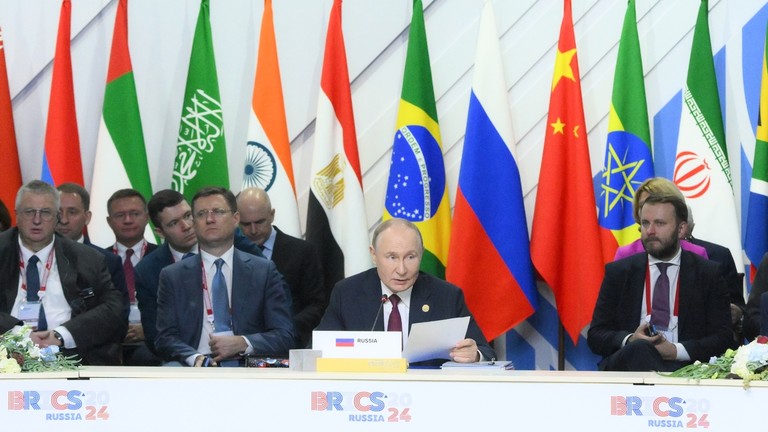
President of Russia Vladimir Putin during an expanded meeting of BRICS leaders during the 16th BRICS summit in Kazan. © Sputnik / Sergey Bobylev
By Timofey Bordachev, program director of the Valdai Club
HomeRussia & FSU
23 October 2024
International politics seems to be losing its ability to develop linearly. From a layman’s point of view, this is, of course, extremely sad. But if we look at what’s happening in the broader context, it can even inspire a certain optimism. Given the current balance of power, this is mainly because any unswerving development will lead us to a much more significant, possibly global, tragedy. In other words, the extraordinarily tragic events that fill today’s news agenda will likely conceal a gradual movement towards a more stable world, for which the constant revision of what we call the international order will be a matter of routine. But at the same time, the likelihood of a revolutionary scenario, to which the near monopoly of a small group of states would inevitably lead us, will be minimized.
In this context, the international community, particularly its leading states, is constantly challenged to choose between two forms of engagement with the outgoing world order: destruction and creation. Both are in dialectical interaction, and it would be strange to think there is a clear and straightforward path to a new, more just world order. All the more so because the opponents of the international community, represented by a small group of countries led by the United States, are not only conducting vigorous defensive operations but are themselves trying to create the conditions for preserving their current privileges in the future. And they have substantial resources and influence to mobilize – not limited to punitive instruments against dissidents. Therefore, the path of revision of the international order that most of the world’s countries are now embarking on is undoubtedly much more complex than any attempt at revolutionary revision. Although – and this is encouraging – it leaves more opportunities for what is happening now to be studied in the future.
Of all the efforts and initiatives rightly seen as driving the new world order, BRICS, the now nine-nation bloc – initially formed by Brazil, Russia, India, and China – is arguably the most important. From the outset, it included states that had the potential to embody, in theory and practice, fundamental changes in the balance of power. Therefore, the BRICS were not inherently inapplicable to the criteria of effectiveness developed by Western political science to assess the success of international organizations.
The creation of such an association was in itself a significant achievement.
First, it included countries with very different foreign policy interests. Sufficiently reliable objective circumstances underpinned their desire to act together to make cooperation between such powers meaningful.
Second, the emergence of BRICS signaled from the outset the West’s inability to control the evolution of international governance. The last significant achievement of the US and Europe in this area was the creation of the G20 in 2009, a group of countries chosen by the West to share responsibility with Washington for the damage caused to the global economy by the US financial crisis 2008. However, as none of the other G20 countries wanted to do so, the impact of the group’s activities was relatively insignificant. At the same time, even though the G20 has almost completely lost its relevance, it is still used by large developing countries as a way to increase their international presence.
For the first time, Western countries did not initiate or lead the process of BRICS.
The achievement is remarkable, given that the entire international architecture, starting with the UN, is now a product of the foreign policy choices of the United States and Western Europe.
As it has developed, the BRICS group embodies a revisionist approach to transforming the international order. It is the antithesis of both the revolutionary aspirations that took place earlier in history and the conservatism of the West, which is increasingly stubbornly trying to defend the previous order, which suited it. In other words, BRICS is rightly perceived as an instrument of civilized restructuring of the entire system of global political and economic regulation, as well as its specificities, expressed in concrete instruments of international cooperation, where the West still has a monopoly position. This seems to be the reason for the growing popularity of BRICS. The demand of different countries to join the bloc is so vividly expressed that it poses a severe choice for the countries that have already signed up.
The fact is that BRICS, as well as the interest in it from a growing number of participants in the international community, is the first real experience of interaction between states outside the order established by Western Europe and the US at the dawn of the modern global system. All pre-existing initiatives or alliances were more or less part of this order and subject to its rules.
This was the reason for the isolation of the USSR even at the moment of its most significant strategic power. After the Second World War, Western countries created institutions that allowed them to keep the energy of their main adversary under control and, in the end, to condemn it to inevitable defeat. Now, the situation seems to have changed. More and more of the world’s countries believe that the West’s current military and economic dominance does not guarantee its total dominance in the future. And most importantly, it cannot be seen by others as the only instrument for solving their development problems. The fact that BRICS was initially driven by the development agenda of its members rather than the destruction of an unjust world order has been its great advantage.
The BRICS countries are now trying to maintain this ideology and platform as the basis of their activities. But it is increasingly difficult to do so against the backdrop of the West seeking to destroy what it can no longer fully manage. It is forcing the rest of us to take more drastic measures or to contemplate their inevitability. This, in particular, explains some of the divergent approaches to the BRICS agenda between its prominent members, China and India.
While China does not seek confrontation with the West, it sees the need to break the US consistently and Western Europe's monopoly. To this end, as Russia does, Beijing has considerable resources and the diplomatic ability to impose its will without engaging in direct armed confrontation. India, for its part, sees BRICS as an essential tool for achieving its development goals. They contrast much less than China with how the West would like to see the world. Moreover, Indian policymakers see the US and Western Europe as essential sources of technology and investment. The country now needs them much more than China, which has taken almost everything it needs from the West in recent decades.
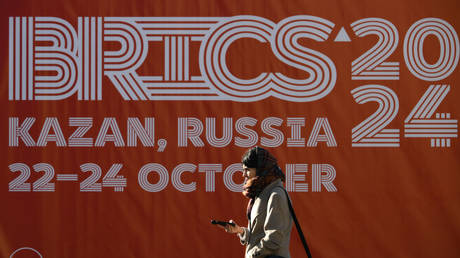
Read more
A new world order in the making: Here’s why this BRICS summit will be special
At the same time, both powers act within the dialectic of destruction and creation that characterizes the behavior of all those who, because of their size, can no longer tolerate the Western monopoly. We can assume that the predominance of one or the other of these two forms of interaction with the outgoing international order is due to the ability of countries to defend their interests independently. China’s ability to stand up for its interests is now much more significant simply because of its developed economy and the growing prosperity of its population. The others do not have such advantages, so their positions differ. However, another question is, how inevitable is the shift to more offensive behavior as domestic strength and resources accumulate?
In a world of uncertainty
The fantastic success of the BRICS as the first alternative project to the Western order also gives rise to curiosities, which characterize contemporary international politics quite well. Recently, Türkiye, a NATO member and the territorial base of US nuclear forces in Eurasia announced its desire to join BRICS. Unlike all other BRICS countries, even those traditionally closest to the US, such as the United Arab Emirates, Ankara is a formal ally of Washington, whose military planning is carried out under American control within the military bloc of the West. As recent events around Israel show, Türkiye gives the US no real reason to question its commitment to securing the most basic American interests in the Middle East. In any case, we have yet to see any examples of the Turkish president’s rhetoric on Israel having a significant impact on his actual policy.
However, it would be superficial to attribute Turkey’s sudden desire to join BRICS solely to the peculiar style of its president or, even less likely, to his desire to become a “Trojan horse” for the West within a grouping that opposes its fundamental aspirations. Most likely, the Turkish authorities sincerely see BRICS as a potentially important tool for solving their issues.
First, to gain prestige worldwide and sources of development funds, which the West seems not to provide sufficiently to the Turks.
Second, to free the country from the political dependency it has fallen into due to the choices that led it to relative economic prosperity and stability in the second half of the last century. We should, therefore, not regard Turkey’s statements on BRICS as mere rhetoric.
Another exciting example is Malaysia, which is persistent in knocking on the BRICS door and proposing specific parameters for its contribution to the organization. Malaysia is a solid country with no history of foreign policy adventurism. It is a full member of ASEAN and has proven its ability to solve development problems without relying on external patronage.
Indeed, the current state of ASEAN is probably one of the reasons why the Malaysian government is looking for new growth sources and raising its profile on the world stage. ASEAN is one of the most successful examples of a significant group of nations working together to address their pressing domestic development challenges. Over the past few decades, its members have achieved important results. In recent years, however, it has encountered specific difficulties. Now, it’s being torn apart from within by the US desire to use it against China.
Meanwhile, the primary goals have been achieved, and the transition to the political level is impossible, as shown by the example of ASEAN’s post-coup policy in Myanmar. The question of what more ASEAN can offer its members is legitimate. At the same time, as in the case of Turkey, Kuala Lumpur is well aware that the West cannot and does not want to provide development sources.
An essential reason countries in the Global South are increasingly looking to BRICS is that their relationship with traditional leaders in the West is changing on both sides.
The emerging powers need resources to achieve a breakthrough in their economic standing and importance in regional and global politics. This goes hand in hand with a desire for greater autonomy in crucial decision-making, as this is demanded by society and can yield more significant foreign policy dividends. However, reaching new heights of development puts them on a par with the weakening West, especially its most vulnerable and declining part – Europe.
No one in the West is prepared to help emerging economies become competitors in the global market and consumption.
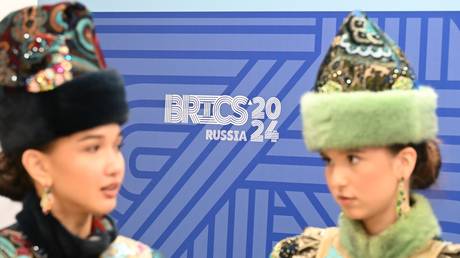
Read more
Here’s why Russia’s BRICS presidency is at a critical crossroads
So, the US and Western Europe want to give less and demand more from the rest of the world.
In some cases, this works when dealing with relatively weak powers. However, more and more countries worldwide are unhappy with this situation because it creates risks to their internal stability and international threats, and it does not offer such profound benefits. Ultimately, the US can only rely on those states whose political systems it controls. However, even in those, as the example of Germany shows, control remains a rather cumbersome affair. But it persists at all levels. The dialectic of creation and destruction here is tilted in favor of the latter, which makes US policy destructive for the development of the world as a whole, in contrast to the Cold War era when the confrontation between the US and the USSR could bring real benefits to developing countries. The rapid growth of China in the 1970s and 1980s is a direct confirmation of this.
The aspirations of Malaysia and several other large developing countries to join BRICS do not reflect the organization's effectiveness in the traditional sense of the word but rather irreversible changes of a global nature. At the same time, it should be remembered that the current criteria for the effectiveness of various types of associations were also created under conditions of total Western dominance. The effectiveness of an organization in this sense is its ability to perform tasks aimed at preserving the monopoly position of the US and the EU in world affairs, as well as the irremovability of the elites in these countries at the domestic level. It is possible that BRICS, like any other organization in the emerging world order, will need a new system for assessing effectiveness based on specific tasks that reflect the interests of the member states.
However, the realization of these interests will inevitably be influenced by the battle between creation and destruction that determines the nature of the main processes in the modern world.
It will be the second most crucial factor in developing the international order in the coming decades, after the interaction between the great nuclear powers. The presence of this polemic, as seen in the example of the development of BRICS, will contribute to the persistence of solid uncertainty in international politics and the world economy, which will not allow for a precise formulation of strategic objectives at national and global levels. Any attempts at such clarity will be signs of some countries’ attempts to lead others down the wrong path and gain unilateral advantages at their expense.
For Moscow, maintaining uncertainty is not a problem: after all, we are now dealing with that permanent freedom of choice for which Russian foreign policy and diplomacy, judging by historical experience, is best equipped.
This article was first published by Valdai Discussion Club and translated and edited by the RT team.
NATO REACTS TO TÜRKIYE’S DESIRE TO JOIN BRICS
Mark Rutte has said that Ankara’s cooperation with the economic group does not contradict its membership in the US-led military bloc.
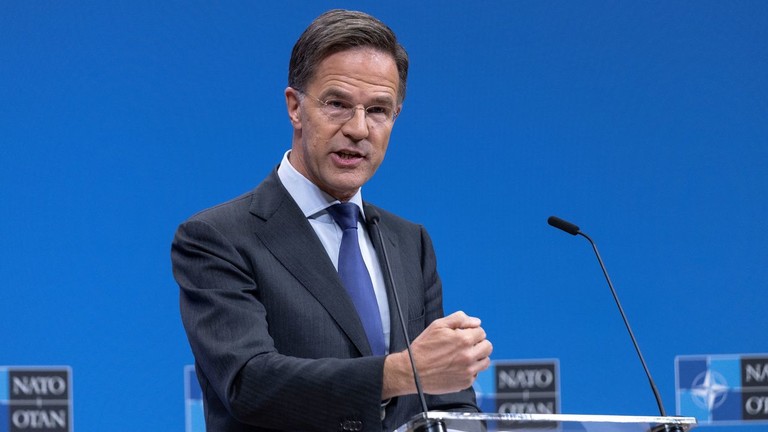
NATO Secretary General Mark Rutte © Getty Images / Omar Havana
Türkiye has the right to cooperate with the BRICS economic group without undermining its status as a NATO member, the secretary-general of the US-led military bloc, Mark Rutte, has said.
HomeWorld News
23 October 2024
The NATO chief made the remarks at a press conference in Estonia on Tuesday.
Asked by the Estonian Public Broadcaster whether Ankara’s desire to become a member of BRICS, which the outlet described as a “Russia-dominated organization,” should be a cause for concern, Rutte stressed that Türkiye remains “an essential ally in the alliance” as it is “one of the best equipped military forces in NATO.” The country plays a “vital role in its part of the NATO geography,” he added.
“Obviously, within the alliance, being a democracy, 32 countries will always have debates on this and that,” the secretary-general admitted. However, he insisted that Ankara has “the sovereign right” to work towards a BRICS membership and cooperate with its members.
“That might lead to debates now and then, bilaterally or within NATO. But that doesn’t mean that Türkiye is not [popular],” Rutte said. “NATO is very popular in Türkiye, and Türkiye is very popular in NATO,” he added, noting that he is convinced that this will remain the case.
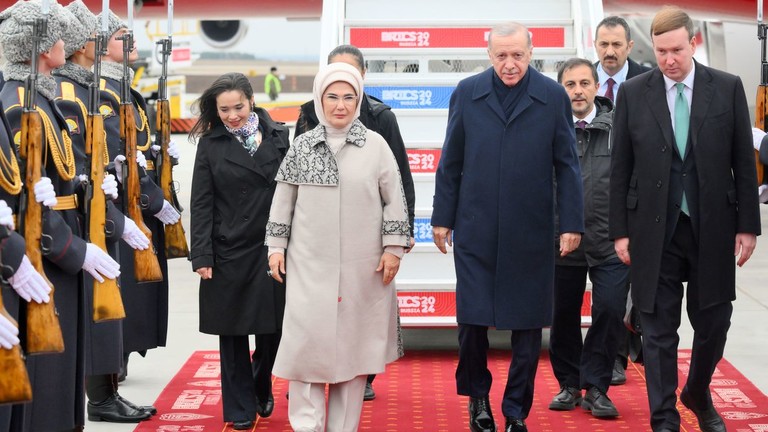
Read more
NATO state’s president arrives at BRICS Summit
Turkish President Recep Tayyip Erdogan is currently participating in the 16th BRICS Summit in Kazan, Russia, where he is expected to meet with President Vladimir Putin to discuss bilateral ties, the Ukraine crisis, and the situation in the Middle East.
Last month, Ankara also announced that it had formally applied to become a full-fledged BRICS member, making it the first NATO state to seek membership in the group.
However, Türkiye’s application has sparked concerns in Brussels. EU spokesman Peter Stano has stressed that Ankara, an EU candidate country since 1999, must respect EU values and foreign policy preferences despite having the right to choose which international organizations to join.
Previously, Turkish officials told the Middle East Eye that while Ankara did not see BRICS as an alternative to NATO or the EU, “the stalled accession process to the European Union” had encouraged it to explore “other economic platforms.”
NEWS-NOW | READ MORE ABOUT BRICS REPORTED FROM AROUND THE WORLD:
https://www.newsnow.com/us/?search=BRICS&lang=en&searchheadlines=1
OPINION| WHERE WILL THE CAPITAL AND SKILLED PEOPLE COME FROM TO DRIVE TECHNOLOGICAL ECONOMIES POST-2030?
Submitted anonymously
23 October 2024
Diesen (and many others) has missed the historical turn in that the US IS MOST DEFINITELY NOT inadvertently stumbling into a multipolar world. Quite the opposite: the US has deliberately decided it’s no longer in its best interest to be the world’s police officer, and the US is intentionally disengaging. US presidential elections over the past 30 years, starting with Clinton, have reinforced this sentiment.
The US is not concerned about China overtaking the US economically (that simply isn’t going to happen). However, the Chinese are militarily aggressive and unpredictable. The primary reason China is failing is the irrefutable and essentially irreversible results of demographics. The global population is currently 8 billion and will probably peak around 9 to 10 billion by 2050.
However, the blunt fact is, if you look at population profiles for the following nations (AKA: the big losers), NONE stand a chance of returning to population replacement birth rates (average 2.1 children/woman), much less population growth, within the next 100 years:
- China
- Russia
- Italy
- Spain
- Germany
- Greece
- S Korea
- Japan
The above nations (plus most others) will suffer catastrophic declines as their educated and skilled populations retire (this is the cohort called Boomers in the USA), and there physically IS NO YOUNGER COHORT TO REPLACE THEM; this quickly translates into economic devastation.
The biggest nation on the list, China, is the poster child for the coming collapse. China habitually and knowingly lies (especially to Westerners) about EVERYTHING: economic performance, product safety and quality, demographics, treaty compliance, military preparedness, etc. For example, until recently, China claimed a population of 1.4B (“the largest in the world”). In 2024, China admitted it overcounted its population by about 100-250M, and India is now the “largest in the world.”
While the misreporting is intentional, totalitarian regimes also have additional problems with corruption and the accuracy of information their junior officials provide to the central government. China excels at lying to itself (reference recent and humiliating issues with Chinese military preparedness). China’s massive debt is certainly another aggravating factor in its impending decline.
Without massive trade from others, China cannot feed itself (70% of fertilizer and foodstuffs are imported) or provide its internal energy requirements (70% of energy requirements are imported). Having polluted surface water and aquifers, China also runs out of fresh water for drinking and agriculture. The US is rapidly withdrawing from defending global sea lanes to ensure safe transport and free trade.
FYI: The nations with the best demographics (AKA: the big winners) for the next 100 years are:
- United States
- Canada
- Mexico
- France
- Turkey
- Australia
- New Zealand
The US Navy has facilitated free trade since post-WWII. Still, the US has never economically depended on it (there are manageable but perhaps temporarily painful exceptions, e.g., rare earth from China). With the impending demographically-driven economic decline, the “English countries” (US, Canada, Mexico, Australia, New Zealand…plus Japan) as a trading group will be pretty comfortable without the rest of the world (including Europe and the Middle East). Japan is a one-off exception. It is a demographic “loser,” but its unique relationship (and navy) will get it included in the “English countries.” For the first time in 150 years, Europeans will be solely responsible for their defense. The US is rapidly disengaging.
However, that new environment will still require a global reserve currency. Ideally, you want a large country with a stable currency and somewhat at arms-length from foreign exchange rate manipulation. In that environment, there is no credible currency to compete with the US dollar. The “English countries” will get much more affluent, and most of the world will get poorer. Nobody (except Russia) uses the Chinese yuan, the Japanese yen is too small, the Russian ruble is laughable, and the Euro is the currency of an ever-weaker EU.
Anybody not seeing the demographic and economic handwriting on the wall is fooling themselves. The first question asked of those disagreeing should be:
“Where will the capital and skilled people come from to drive technological economies post-2030?” (answer: The English countries”).
VIEW | THE IMPENDING ECONOMIC MELTDOWN - WITH INVESTOR LEGEND JIM ROGERS, ALEXANDER MERCOURIS, AND GLENN DIESEN
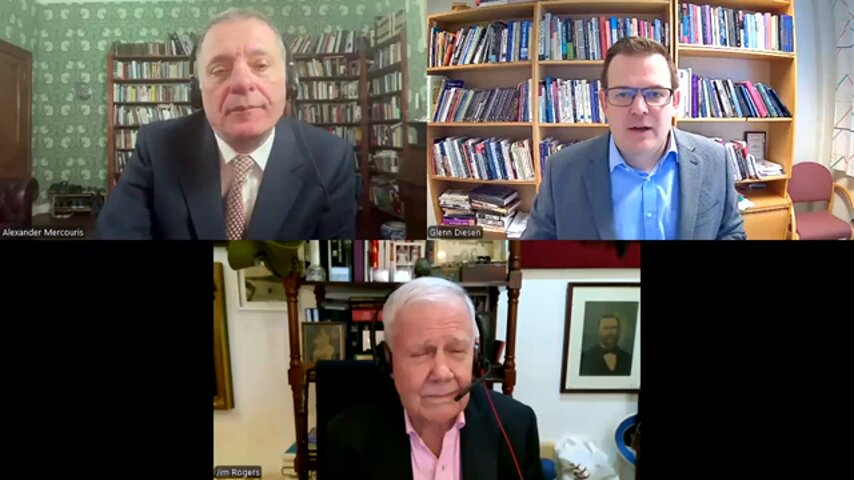
Watch the Video Here (1 hour, 2 minutes, 8 seconds)
By Glenn Diesen
Substack.com
6 October 2024
I had a conversation with the investor legend Jim Rogers and Alexander Mercouris.
Jim Rogers is known for being correct in his predictions. He asserted that the next economic crisis will be “the worst in our lifetime.” Jim Rogers argues that the 19th century belonged to Britain and the 20th century belonged to America, although the 21st century belonged to China and Asia.
Convinced by this prediction, Jim Rogers and his family moved to Singapore as Asia was the future.
BUILDING THE BRIDGE! | A WAY TO GET TO KNOW THE OTHER AND ONE ANOTHER
Making a Difference – The Means, Methods, and Mechanism for Many to Move Mountains
.jpg)
Photo Credit: Abraham A. van Kempen, our home away from home on the Dead Sea
By Abraham A. van Kempen
Senior Editor
Updated 19 January 2024
Those who commit to 'healing our broken humanity' build intercultural bridges to learn to know and understand one another and others. Readers who thumb through the Building the Bridge (BTB) pages are not mindless sheep following other mindless sheep. They THINK. They want to be at the forefront of making a difference. They're in search of the bigger picture to expand their horizons. They don't need BTB or anyone else to confirm their biases.
Making a Difference – The Means, Methods, and Mechanism for Many to Move Mountains
Accurate knowledge promotes understanding, dispels prejudice, and awakens the desire to learn more. Words have an extraordinary power to bring people together, divide them, forge bonds of friendship, or provoke hostility. Modern technology offers unprecedented possibilities for good, fostering harmony and reconciliation. Yet its misuse can do untold harm, leading to misunderstanding, prejudice, and conflict.
A Free Trial for Life – SUBSCRIBE NOW!

• It's quick and straightforward.
• We won’t ask for your credit card number.
• Just enter your e-mail address to receive your complimentary free-for-life subscription to our newsletter.
• Please include your First and Last Name.
• We won’t share or sell your e-mail address.
_________________________
Related Articles Recently Posted on www.buildingthebridgefoundation.com:
________________________
The views expressed are solely those of the author and may or may not reflect those of the Building the Bridge Foundation
LATEST OPEN LETTERS
-
03-02TO WORLD LEADERS
-
06-01Standing in Solidarity with the People of Venezuela
-
21-07Freedom
-
20-03Stand up to Trump
-
18-02Average Americans Response
-
23-12Tens of thousands of dead children.......this must stop
-
05-06A Call to Action: Uniting for a Lasting Peace in the Holy Land
-
28-05Concerned world citizen
-
13-02World Peace
-
05-12My scream to the world
VIRTUAL POST OFFICE
PETITIONS
LINKS
DONATION
Latest Blog Articles
-
04-03Our Wednesday News Analysis | Editorial | A Regime Change is On the Rise
-
04-03Editorial | A Regime Change is On the Rise
-
03-03Debunked and Confirmed: Myths and Realities from the Iran War
-
03-03The Suicidal Folly of a War with Iran
-
02-03The Evangelical Pope | "Prayer is not only speaking but, above all, listening."
-
26-02Our Friday News Analysis | What the World Reads Now!
-
25-02Our Wednesday News Analysis | Rubio declared a return to brutal western colonialism – and Europe applauded
-
24-02Rubio declared a return to brutal western colonialism – and Europe applauded
-
24-02The Palestinian Authority's new constitution: A roadmap to statehood?
-
24-02No explanation, no appeal: Israel revoking entry authorization of foreign activists
-
23-02The Evangelical Pope | Faith Unites and Strengthens Bonds
Latest Comments
 One of the most important and illuminating articles that I …
One of the most important and illuminating articles that I …
Comment by Benjamin Inbaraj And what's wrong here?
After all, there is the homeland …
And what's wrong here?
After all, there is the homeland …
Comment by Isac Boian Does this reinforce or deny my argument that Israel is …
Does this reinforce or deny my argument that Israel is …
Comment by Edward Campbell Many 'say' they support the Palestinian cause but do little …
Many 'say' they support the Palestinian cause but do little …
Comment by Philip McFedries The UN is strangled by the "war for profit" cabal …
The UN is strangled by the "war for profit" cabal …
Comment by Philip McFedries I can't read the printing on the map.
I can't read the printing on the map.
Comment by Philip McFedries Good news!
Good news!
Comment by Philip McFedries

.jpg)
COMMENTS
This article has 0 comments at this time. We invoke you to participate the discussion and leave your comment below. Share your opinion and let the world know.